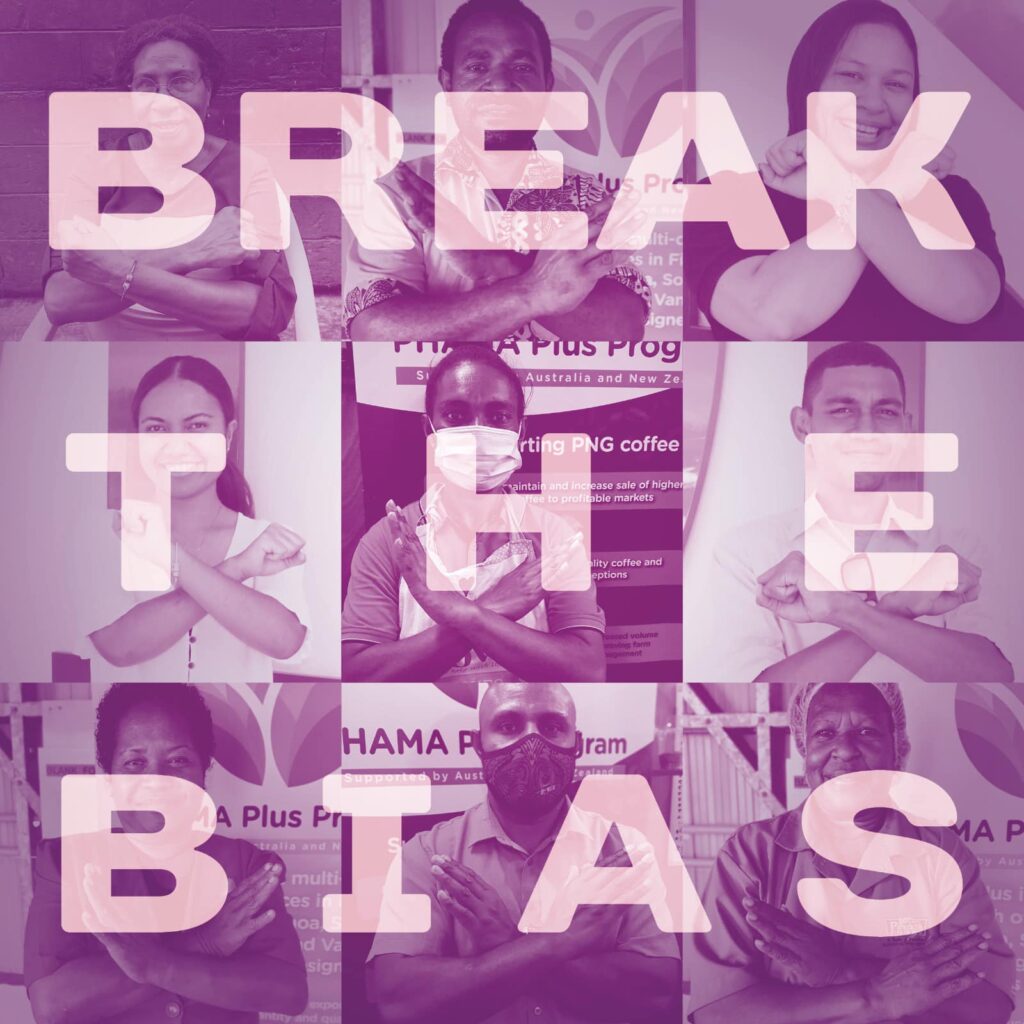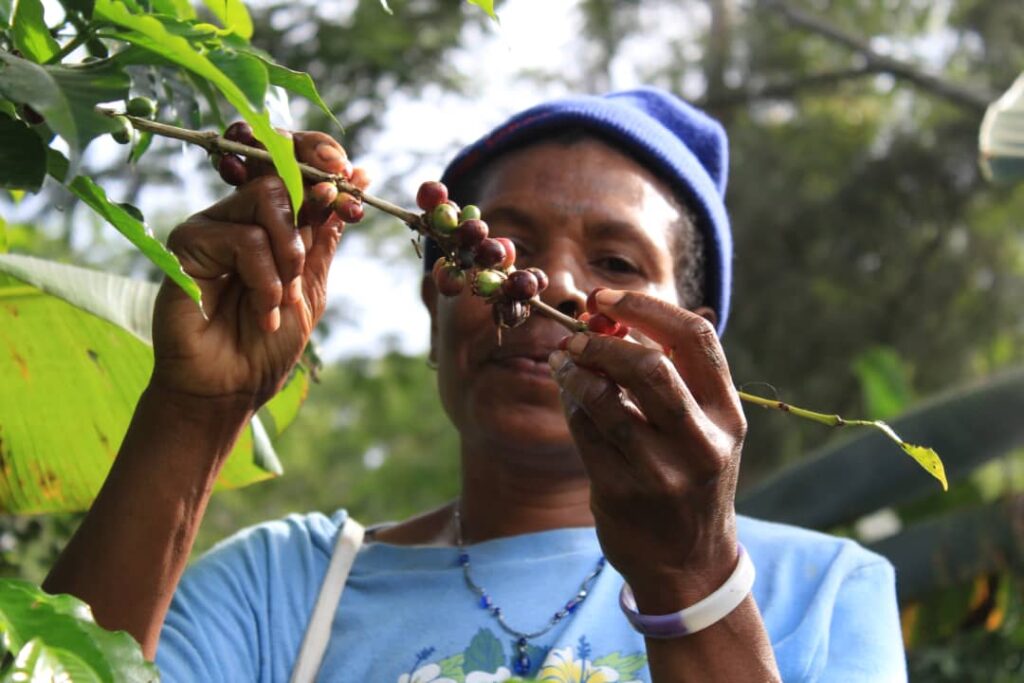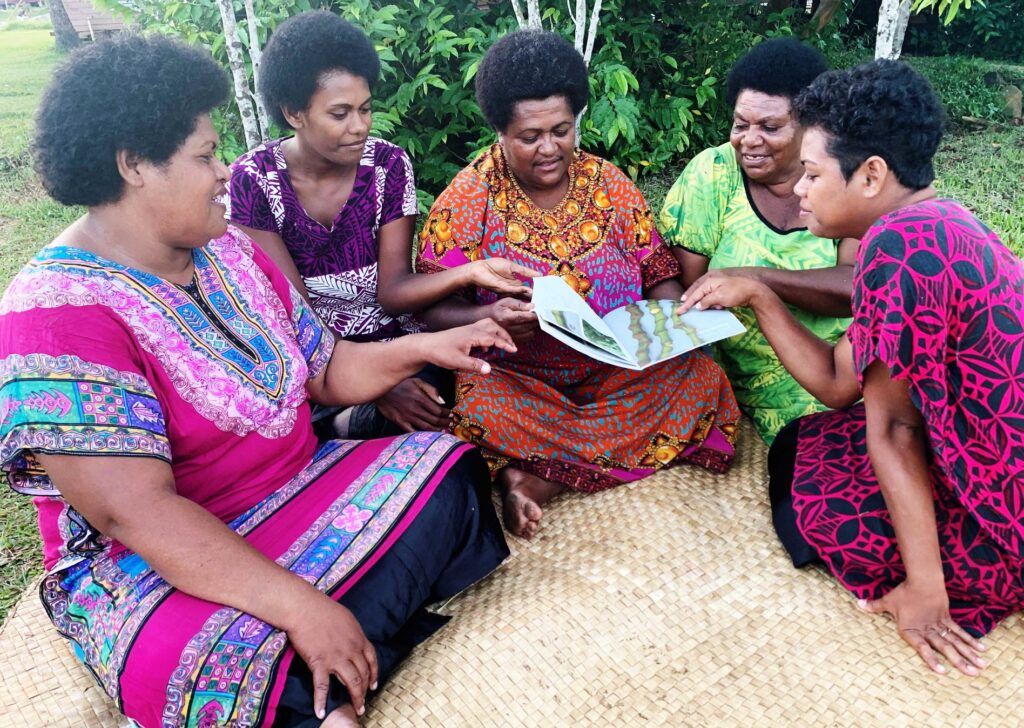Challenge for an equal world
Women continue to shape the world and undeniably play a crucial role in the agriculture sector.
But while there have been positive changes, more needs to be done so that women across agricultural value chains are economically empowered and have equal access to the right resources.
This is part of a wider global call today on International Women’s Day to “Break the Bias” and help forge positive change for women.
Inclusive growth
Agriculture is central to the livelihoods of Pacific Island people with exporters, processors, and farming households as drivers of economic growth and food supply chains.
The Australia and New Zealand supported Pacific Horticultural and Agricultural Market Access Plus (PHAMA Plus) program contributes towards improved economic growth and rural livelihoods in the region, with an emphasis on ensuring this growth is inclusive and also benefits women, youth and persons with disabilities (PWD).

Both on and off the farm, the impact women have in agriculture is significant.
But the role of women in agriculture continues to be understated.
Women in particular face limited access to productive resources such as extension services, agricultural information and agricultural supplies.
They also play key roles in farming families as caregivers for children and the elderly which are not often recognised and valued.
These typical gendered roles impact women’s ability to pursue income-generating activities or be fully economically productive.
At PHAMA Plus we ensure that Gender Equality, Disability and Social Inclusion (GEDSI) activities, actions and efforts are reflected across all our work and partnerships. We do this through four key strategic drivers of economic empowerment:
- addressing adverse cultural norms;
- strengthening visibility, voice and representation of women, PWD and youth;
- changing business culture and practice; and
- building assets and access to assets, for women, PWD and youth in agricultural value chains.
GEDSI in action
- In PNG, we are supporting Kokanas Indastri Korporesen (KiK) to establish and build the capacity of a women’s desk to provide assistance to women entrepreneurs working in high-value coconut product development. Similar backing is being rendered to the PNG Women in Coffee Association (WICA) by developing a Strategic Plan and strengthening representation and value proposition to its 6,680 members which includes coffee growers, women in coffee businesses and co-operatives.

- We are providing funding and technical support with PNG’s biosecurity agency – National Agriculture and Quarantine Inspection Authority (NAQIA) to effectively implement its African Swine Fever (ASF) response, with a focus on the inclusion of women and mitigating gender-related risks.
- In Fiji, we are working with export company Lami Kava to help conduct a review of its workplace policies, including the establishment of a workplace domestic violence policy to create a supportive work environment for its largely female staff.
- In Tonga, GEDSI inputs provided via the program gave our partner Nishi Trading the confidence to engage women watermelon growers and meet their target of establishing supply agreements with at least two female watermelon growers. This represents a significant achievement in what is traditionally a male-dominated sector in Tonga.
- We have conducted an internal GEDSI health check of our existing partnerships and interventions under development to identify areas that may need further strengthening in terms of involving women, PWD, youths and those in rural communities as key actors in the value chain.
- Across the six PHAMA Plus countries, the Family Farm Teams (FFT) program is being introduced to our partners to encourage more effective, sustainable and gender equitable farming and business practices. It also creates a platform to explore ways to develop and facilitate the business acumen, skills and knowledge of women farmers.

Break the Bias
On this International Women’s Day, while celebrating social, economic, cultural and political achievements of women, we must also call to action gender equality in all facets of society. The day calls us to choose to challenge and call out gender bias and inequality. Individually, we are all responsible for our own thoughts and actions – all day, every day. And together, we can all turn the tide of inequality and help create an inclusive world. Will you #ChooseToChallenge?
-ENDs-
For more information and resources on International Women’s Day, please visit https://www.internationalwomensday.com/
